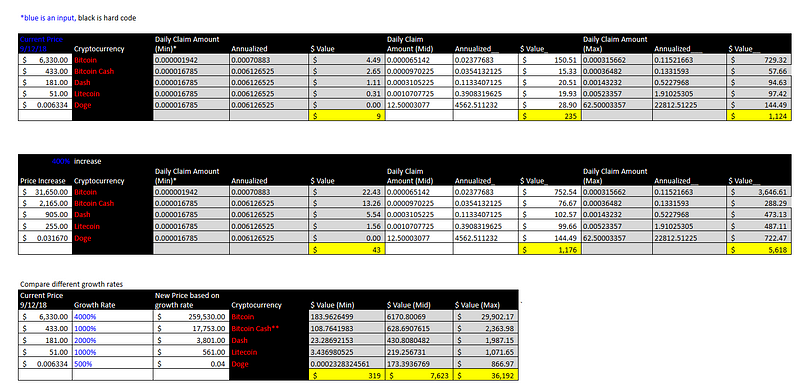There are many reasons to like bitcoin. For a list of the financial reasons, read my article entitled:
Bitcoin Valuation: $4 Million - | Seeking Alpha
It was in this article that I first announced my belief that bitcoin's value could easily reach $4 million. First, yes, I still think $4 million is possible. In fact, I think it's more possible than ever, because the banking cartel has thrown everything it can at bitcoin and it's still thriving. We also have applications like
Abra that make it possible for bitcoin to become the world's reserve currency (more on the mechanics of that in a later post. Abra discusses it on their website as well).
Moving on to the point of this post, however, is that I love the fact that bitcoin can't be controlled. That lack of controller-ship appeals to me as a way to dis-empower the power structure. I liken it to the pride I'd feel for a son or daughter that became a revolutionary.
Indeed, if bitcoin were a person, the power structure would have put him on a modern day cross. Perhaps bitcoin and Assange could share the same cell. I digress. Back to the point...
Bitcoin can't be controlled by banks, government or anyone else. It is a truly decentralized form of exchange that requires the approval of everyone that owns it to be controlled.
This is not a theory. This kind of technology is here. Bitcoin is the embodiment of that technology and it's in its 9th year. It's held up to attack after attack. And,
if it could be controlled, they would have figured out a way to do it by now.
Today, Bitcoin stands at well over the price of gold. For all those pessimists, even when bitcoin dropped to its lowest levels over the latest pullback,
it never dropped below the price of gold. Gold, the world's most valuable and precious metal.
So, bitcoin's viability has been tested and it has passed every one of
their tests. What next?
What's Next: Bankers Civil War
From Asia to North America to Europe, quantitative easing and ample reserves are the new black. Which is to say, it's all the rage. Nation states hate inflation, but they love quantitative easing, which is a bit like saying I hate food, but I love to eat. It's schizophrenic. The schizophrenia is brought about by extreme inner conflict between greed and power. Some bankers see quantitative easing and the IOER scheme as the last big grab, others see it as a hedge against an inevitable foe called inflation. I'll cover more on the growing civil war within the banking industry in a later post.
My point is that the Federal Reserve's clear loss of control over the fed funds rate and the plan to make quantitative easing a permanent program have created a surge in bitcoin in recent months. It all started around March 20 -- the day the Fed announced the FOMC decision to keep rates steady. That's also the day the fed funds rate started outpacing the IOER. Some folks didn't like that decision and now we have a civil war within the banking industry.
That's why bitcoin has surged in recent months. It is a condemnation of the lack of control, a condemnation of gross negligence and irresponsibility.
And, every time a nation or group has a disagreement with their government, bitcoin will be there, arms held wide.
Bitcoin gives the world all kinds of reasons to love it.
We now have a viable alternative to reckless economic behavior, a new heavy weight has stepped into the ring to fight for us. Not just for North America, but for every group in the world. Bitcoin is, and is currently in the process of becoming, the world's reserve currency.
With this comes the end to monetary corruption. With this comes a sort of transparency and freedom that this country's forefathers could only dream about.
Bitcoin does not solve all of our problems, but it gives us the ability to be free. What we earn will truly be our own. Bitcoin can't be confiscated, it can't be burned, it can't be deducted from, it can't be turned against us or taken down. It has no language, nationality, color, religion or creed and it has come, like a savior, to save us from ourselves. (Jesus was a revolutionary too)
If you're looking for a place to get started with bitcoin investments, take a look at
Abra. Read what they're about and how they differ from the competition. If bitcoin does become the reserve currency of the world, it will be in large part due to the work Abra's doing.





